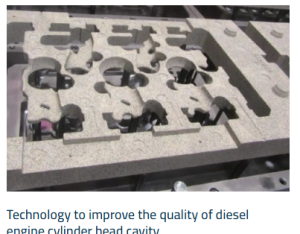CNC prototyping services offer a critical advantage to a whole list of industries including aerospace and consumer electronics with the ability to provide precision, efficiency, and the flexibility otherwise unseen in traditional manufacturing methods. In this article, we will find out how the unique perks of CNC prototyping make it essential to the current world of product development and manufacturing.
Rapid Turnaround Times
The development process is much faster with CNC prototyping. Where the production of a single prototype can sometimes take weeks using traditional processes, CNC machines can manufacture intricate parts in even a matter of hours where necessary. For example, a regular CNC project could move from the design stage to a prototype in 2 to 3 days depending on the complexity and the material. For businesses who rely on iterating quickly to improve their designs or deliver a product to market before a competitor does, this speedy turnaround is essential.
Why is it so good because the model is having a very high accuracy and consistency for predicting the correct dormitory?
With a maximum accuracy of ±0.005 inches, CNC machines lend themselves to the creation of intricate parts made to precise tolerances and complex geometries. This accuracy is important in industries where minimal deviation will ruin the final product, for example medical or aerospace industries. Another advantage is consistency, as CNC machines can crank out hundreds, if not thousands, of parts that are nearly exact mirror images of one another, providing quality assurance and repeat-ability for large production volumes.
Low-Volume Production: Best in Class at the Lowest Cost
Unlike conventional manufacturing, CNC prototyping does not require expensive molds or setups. This makes it extremely cost-effective for low to medium volume production, where the cost per unit with traditional methods would be too high. CNC can save companies as much as 60% on production costs for prototypes and small batch runs over traditional manufacturing methods; making it a fantastic option for startups and small businesses needing to balance a budget.
Material Versatility
A CNC machine is capable of using a massive range of materials, from metals like aluminum, and steel, to plastics like ABS and polycarbonate, and even composites. Below are few applications where this kind of versatility helps manufacturers to select the right material for a prototype based on strength, weight, and any environmental conditions. It also allows prototypes to be produced in the same material as the end product to yield more realistic performance data.

Enhanced Design Flexibility
CNC machining is unmatched for the creation of complex shapes and internal features. The new style of 3D printing has filled in as an alternate methodology since architects are not any more limited by conventional manual manufacturing and forming capacities. This has permitted parts of a wide assortment of shapes and innovation to be made which at no other time were conceivable. By integrating more features into a single part, reductions in the number of components may also be possible, leading to shorter assembly time and cost.
Enhanced Security and Privacy
One of the reasons is that company can keep it innovative tooling design or prototypes confidential if they are using in-house CNC prototyping service. It is especially useful for competitive sectors where keeping a new product tightly underwraps until after it has launched could be vital to a company's success. The in-house CNC reduces the chance of intellectual property theft since the more sensitive projects never leave the premises.
Sustainability
Some of the traditional prototyping processes are no more environment-friendly than CNC machining. This will also tend to create less waste as the machine cuts material away from a solid block to produce the part and in many cases, the remaining shavings can be reused. The precision of CNC machining also means that there is no energy cost associated with scrapped defective parts.
Philippine Companies in Various Industries
Applications: The applications of CNC prototyping services are used across automotive, electronics, healthcare and consumer goods industries. Fast and accurate parts and components production also permits such industries to further innovate new and advanced end products, and get their products into the marketplace quicker and more efficiently.
Where CNC prototyping services offer the best-in-class benefits improve and speed up the manufacturing. These benefits help companies to be responsive, proactive, and competitive in a dynamic market landscape.